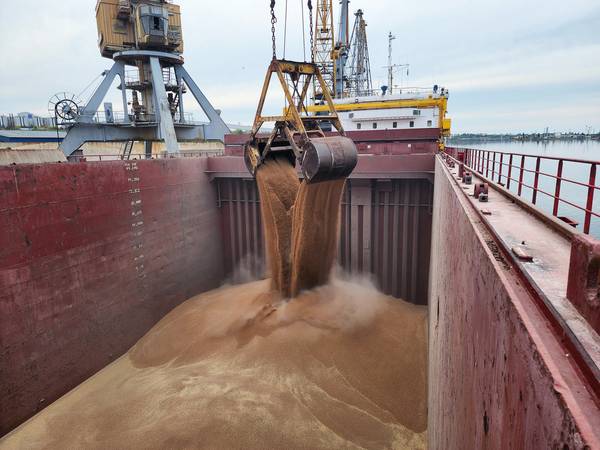
The Baltic Exchange's dry bulk sea freight index, which tracks rates for ships carrying dry bulk commodities, dipped to a more-than-17-month low on Wednesday, hurt by falling rates across all vessel segments.
The index, which factors in rates for capesize, panamax and supramax shipping vessels, lost 49 points to 966 points, its lowest since late July 2023.
The capesize index was down 118 points to 1,100 points. Average daily earnings for capesize vessels, which typically transport 150,000-ton cargoes such as iron ore and coal, decreased by $979 to $9,123.
Dalian iron ore futures declined for the fourth straight session, as China's latest stimulus measures left investors disappointed and steel market prospects remained weak.
The panamax index fell by 24 points to 1,037 points. Average daily earnings for panamax vessels, which usually carry 60,000-70,000 tons of coal or grain cargo, decreased by $216 to $9,331.
Among smaller vessels, the supramax index fell 10 points to 846 points, declining for the 19th straight session.
Elsewhere, Finnish police said on Tuesday they had recovered a lost anchor from the seabed as part of an investigation of suspected sabotage of power and internet cables in the Baltic Sea.




